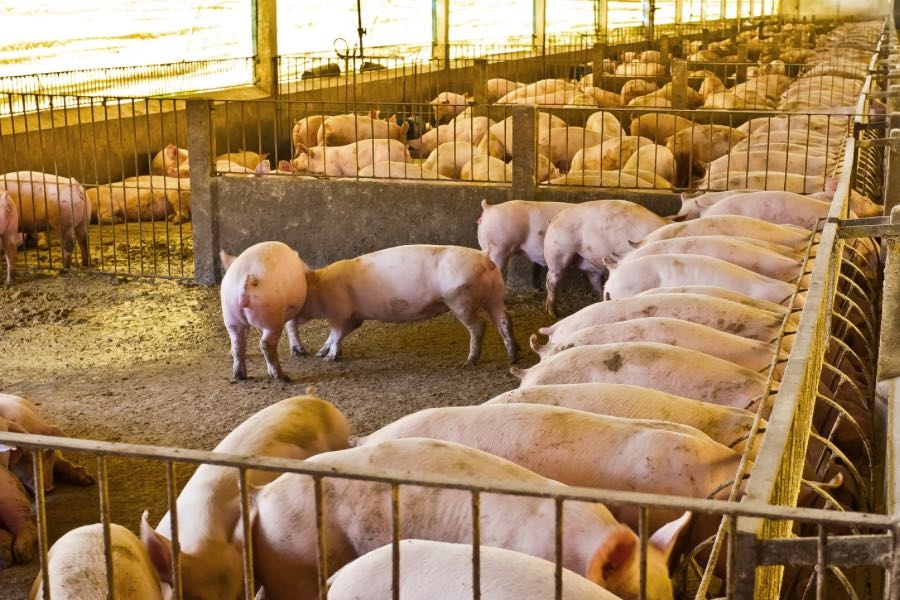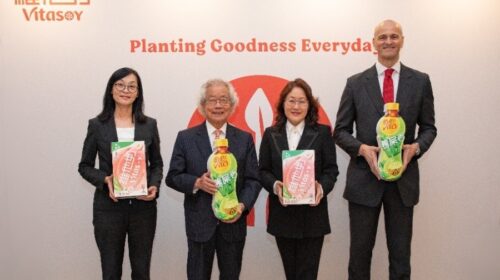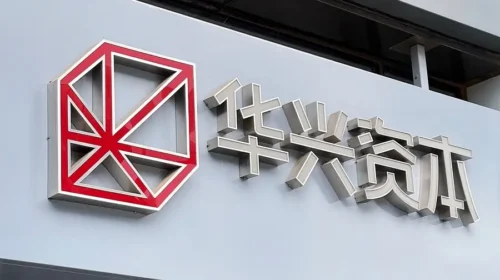Dekon Serves Up Hong Kong IPO Rich on Meat, But Low in Margins

The hog and poultry supplier hopes to beef up an IPO food category that’s currently underrepresented on the Hong Kong stock market
Key Takeaways:
- Dekon Food has filed for a Hong Kong IPO, posting variable profits in recent years on wildly fluctuating hog prices
- Soaring feed costs and increased borrowings to fund expansion have left the company more highly geared than its peers
By Emily Chan
Its industry may not sound that sexy, providing China’s butchers with the millions of hogs and chickens eaten by Chinese consumers each year. But Dekon Food and Agriculture Group is hoping to get investor mouths watering nonetheless with a newly updated plan for a Hong Kong IPO.
Founded in 2011, the company is taking its second stab at a listing a year after its first try failed to make it out of the pen. Dekon mainly sells hogs, poultry and related products like feed ingredients, with its core hog and poultry products accounting for 75.5% and 24% of its revenue, respectively, in the first three quarters of last year, according to its preliminary prospectus filed at the end of last month.
The company sold some 3.9 million hogs in that time, making it China’s sixth largest supplier in a nation where pork is easily the most widely consumed meat.
Like many big-scale operators, Dekon uses a hybrid model combining company and family-run farms. Such models are widely used throughout China’s other livestock sectors, reflecting a time not long ago when most animals were raised on such small farms. But Beijing is pushing for the emergence of larger operators that can better control quality as well as disease outbreaks, putting companies like Dekon in strong position to emerge as industry consolidators.
In instances where Dekon works with other farmers, it provides services like breeding management, piglet production and product sales, as well as technology, training and other forms of support. Its farming partners provide land and facilities for contract-based breeding.
While the asset-light model gives it big scale with low costs, it often comes with low profit margins and weak quality control as well. In the first three quarters of 2022, for example, Dekon’s overall gross margin was just 6.3%, while its family farms accounted for 82.8% of its hog sales. The ratio was even higher for its poultry business, which got as much as 97% of its revenue from family farms in the same period.
‘Pig cycle’ disruptions
The company’s revenue has grown steadily over the past three years, recording 47.7% and 21.6% increases in 2020 and 2021, respectively, and growing another 31.3% to 9.66 billion yuan ($1.42 billion) in the first three quarters of last year.
But it’s a squeakier story for the company’s profits. Dekon’s net profit rose 72.5% to 3.61 billion yuan in 2020, only to plunge to a 3.17 billion yuan loss the following year, before returning to a net profit of 850 million yuan in the first three quarters of last year. Its profit roller coaster owed largely to recent disruptions in China’s “pig cycle” that is central to the company’s main hog business.
An outbreak of African swine fever in China dating to late 2018 severely disrupted the cycle, leading to a sharp decline in the hogs for sale in the following two years, sparking a huge jump in pork prices. That was bad for Dekon’s revenue, but good for profits since it sold far fewer hogs but got far more money for each one. The company only sold 1.3 million commercial hogs in 2020, but the average selling price stood at 4,304 yuan per head, boosting its gross margin to 55.2%.
But as the outbreak faded, production resumed at more normal levels, boosting supply and dragging down prices. In 2021, the average price for each commercial hog fell by 51% to 2,111 yuan, driving Dekon’s gross margin down to just 5.2%. Such low margins pushed the company into the red, explaining the net loss that year.
Rising feed costs
In addition to slipping hog prices, a surge in feed costs was also a major factor behind Dekon’s deteriorating margins, which shrank from 38.8% in 2020 to 6.3% in the first 9 months of last year.
Feed and feed ingredients are the company’s biggest expenses, accounting for about 70% of its total cost of sales in the past three years. Its average price for corn rose 49.1% from 1,907 yuan per ton in 2017 to 2,844 yuan last year on rising livestock sales and also due to Russia’s invasion of Ukraine, a major grain producer. Similarly, after staying stable between 2017 and 2021, soymeal prices suddenly jumped 24% last year.
Dekon certainly isn’t alone in getting squeezed by wild gyrations plaguing the industry. Other companies have felt the pinch even more acutely, leading some to look for more efficient business models.
In one notable example, the larger Wens Foodstuff Group (300498.SZ) recently abandoned its 30-year-old hybrid business in favor of a new model combining company facilities with modern industrial parks and professional farmers. The transformation has paid off, with Wens posting a gross margin of 11.29% in the first three quarters of last year, nearly double Dekon’s.
There’s no doubt Dekon may need to undergo a similar transformation, though such a move could require lots of capital to build up its own operations. That said, the company’s own finances look somewhat shaky. Its gearing ratio stood at 73.9% at the end of last September, higher than Wens’ 60%. Dekon’s outstanding debt at that time totaled 9.08 billion yuan, much higher than its 2.37 billion yuan in cash. Thus, it’s probably safe to say that Dekon is chasing its IPO partly to relieve some of its financial pressure over the short- to medium-term.
After a rough year in 2021, Chinese hog enterprises got some relief last year. Like Dekon, Wens returned to the black with a profit of 686 million yuan in the first three quarters of the year. Its market capitalization is as high as 130 billion yuan, giving it a very high price-to-earnings (P/E) ratio of 142 times if its fourth-quarter profit is similar to the year’s average. Such valuations may mean less due to recent profit volatility. But that said, Dekon’s smaller scale and lower margins are likely to make it “second-hog” to bigger, more efficient operators like Wens.To subscribe to Bamboo Works weekly free newsletter, click here






